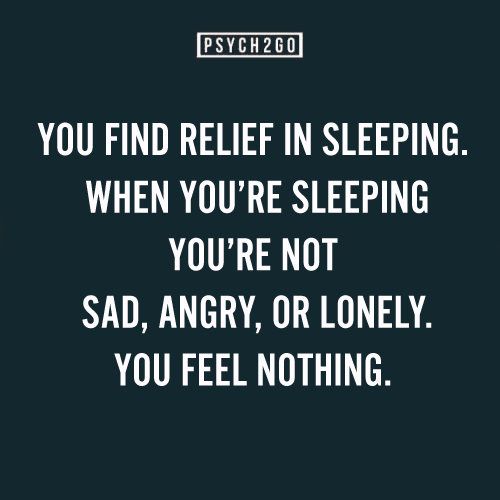Vague Post
vague post

More Posts from Sordidsass-blog and Others










paranoid parrot
as a child, i had this really interesting way of dealing with executive dysfunction:
when i needed to do something but did not get the impulse to actually start, i counted to 20.
and at 20, i did the thing.
i started this in order to get me out of bed in the morning, and after a few weeks it was a reliable source of starting impulses. every time i hit 20, i got started.
somewhere along the way i stopped doing it, because it was weird and nobody else needed to count in order to do stuff.
it makes me wonder, how many brilliant coping skills do we loose or never develop because we live in a neurotypical world and nobody teaches us these things? because we think they’re weird, because we don’t have words for what we’re doing, because they seem to have no place in this world?

Graphics created by: @eclecticjessica


Are two people who disassociate together disassociates?








So this happens. Particularly zoning out, and it seems more intense now that I've been on medication. Sustaining concentration on anything is difficult.
I tend to crochet to keep myself grounded. But even then, I'll become enamored with the texture or my progress and I'll stop and dissociate. Even writing this reblog was more difficult than it should have been.
Are You Dissociating?
Dissociating is one of the most common responses to abuse and trauma. It involves feeling numb, detached or unreal and (while it happens to everyone once in a while) is experienced more frequently and severely in survivors. Dissociating people vary widely in symptoms and may experience any or all of the things from the following list.
You may be dissociating if you:
find yourself staring at one spot, not thinking anything
feel completely numb
feel like you’re not really in your body, like you’re watching yourself in a movie.
feel suddenly lightheaded or dizzy
lose the plot of the show or conversation you were focused on
feel as if you’re not quite real, like you’re in a dream
feel like you’re floating
suddenly feel like you’re not a part of the world around you
feel detached and far away from other people, who may seem mechanical or unreal to you
are very startled when someone/something gets your attention
completely forget what you were thinking just a moment ago
suddenly cover your face or react as if you’re about to be hurt for no reason
can’t remember important information about yourself, like your age or where you live
find yourself rocking back and forth
become very focused on a small or trivial object or event
find that voices, sounds or writing seem far away and you sometimes have trouble understanding them.
feel as if you’ve just experienced a flashback (perhaps rapidly) but you can’t remember anything about it.
perceive your body as foreign or not belonging to you
(likes and reblogs always taken as support)

The first Cybathlon pushed the limits of bionic technology
Andre van Rüschen slowly climbed a five-step ramp at the end of his race. With a black processor strapped to his back and leg supports on either side of his lower limbs, he stayed focused on the body-machine coordination that was keeping him upright.
-
 starwoof liked this · 3 weeks ago
starwoof liked this · 3 weeks ago -
 lilmissmutant reblogged this · 3 weeks ago
lilmissmutant reblogged this · 3 weeks ago -
 lilmissmutant liked this · 3 weeks ago
lilmissmutant liked this · 3 weeks ago -
 music-and-dance-is-my-life liked this · 3 weeks ago
music-and-dance-is-my-life liked this · 3 weeks ago -
 merrillshawke reblogged this · 3 weeks ago
merrillshawke reblogged this · 3 weeks ago -
 thewinterwitcher liked this · 3 weeks ago
thewinterwitcher liked this · 3 weeks ago -
 bencan-t reblogged this · 3 weeks ago
bencan-t reblogged this · 3 weeks ago -
 sgtsweetcheeks reblogged this · 3 weeks ago
sgtsweetcheeks reblogged this · 3 weeks ago -
 zethry reblogged this · 3 weeks ago
zethry reblogged this · 3 weeks ago -
 mmeggin reblogged this · 3 weeks ago
mmeggin reblogged this · 3 weeks ago -
 thefuckingvillainmustache reblogged this · 3 weeks ago
thefuckingvillainmustache reblogged this · 3 weeks ago -
 pass1onepr1ncess liked this · 1 month ago
pass1onepr1ncess liked this · 1 month ago -
 wizardcrow liked this · 1 month ago
wizardcrow liked this · 1 month ago -
 amphibiananarchy reblogged this · 1 month ago
amphibiananarchy reblogged this · 1 month ago -
 amphibiananarchy liked this · 1 month ago
amphibiananarchy liked this · 1 month ago -
 averyhallows reblogged this · 1 month ago
averyhallows reblogged this · 1 month ago -
 sleepydreameroncloud9 reblogged this · 1 month ago
sleepydreameroncloud9 reblogged this · 1 month ago -
 taketwentyfive reblogged this · 3 months ago
taketwentyfive reblogged this · 3 months ago -
 fangirlsleep reblogged this · 3 months ago
fangirlsleep reblogged this · 3 months ago -
 cookiesforthedarkside reblogged this · 3 months ago
cookiesforthedarkside reblogged this · 3 months ago -
 wienerlicious reblogged this · 3 months ago
wienerlicious reblogged this · 3 months ago -
 s-h-y-y-a-n-n-e liked this · 4 months ago
s-h-y-y-a-n-n-e liked this · 4 months ago -
 my-t4t-romance liked this · 4 months ago
my-t4t-romance liked this · 4 months ago -
 alexthespaceace liked this · 4 months ago
alexthespaceace liked this · 4 months ago -
 nereaddict reblogged this · 6 months ago
nereaddict reblogged this · 6 months ago -
 catindulgences reblogged this · 6 months ago
catindulgences reblogged this · 6 months ago -
 moonmice liked this · 8 months ago
moonmice liked this · 8 months ago -
 courierrsix reblogged this · 8 months ago
courierrsix reblogged this · 8 months ago -
 kailee-d-d liked this · 10 months ago
kailee-d-d liked this · 10 months ago -
 also-jam1220-art liked this · 10 months ago
also-jam1220-art liked this · 10 months ago -
 why-the-nightingale-sings reblogged this · 10 months ago
why-the-nightingale-sings reblogged this · 10 months ago -
 eri-blogs-life reblogged this · 10 months ago
eri-blogs-life reblogged this · 10 months ago -
 pingupop liked this · 11 months ago
pingupop liked this · 11 months ago -
 johnnystringbean reblogged this · 11 months ago
johnnystringbean reblogged this · 11 months ago -
 nathanielthecurious liked this · 11 months ago
nathanielthecurious liked this · 11 months ago -
 marimicantis reblogged this · 11 months ago
marimicantis reblogged this · 11 months ago -
 marimicantis liked this · 11 months ago
marimicantis liked this · 11 months ago -
 rruralroy reblogged this · 11 months ago
rruralroy reblogged this · 11 months ago -
 torusquebec liked this · 11 months ago
torusquebec liked this · 11 months ago -
 gorgon-heap reblogged this · 11 months ago
gorgon-heap reblogged this · 11 months ago -
 justsomethough reblogged this · 11 months ago
justsomethough reblogged this · 11 months ago -
 justsomethough liked this · 11 months ago
justsomethough liked this · 11 months ago -
 sonatafries liked this · 11 months ago
sonatafries liked this · 11 months ago -
 paraducksspace reblogged this · 11 months ago
paraducksspace reblogged this · 11 months ago -
 jimmyclueless liked this · 11 months ago
jimmyclueless liked this · 11 months ago -
 viky-somebody liked this · 11 months ago
viky-somebody liked this · 11 months ago -
 321bogwater reblogged this · 11 months ago
321bogwater reblogged this · 11 months ago -
 polktech liked this · 11 months ago
polktech liked this · 11 months ago -
 below-average-kazoo reblogged this · 11 months ago
below-average-kazoo reblogged this · 11 months ago -
 cas-n0t-castiel liked this · 11 months ago
cas-n0t-castiel liked this · 11 months ago
Struggling with mental illness after a traumatic event most likely caused by mental illness. Sexual Assault Survivor.
282 posts